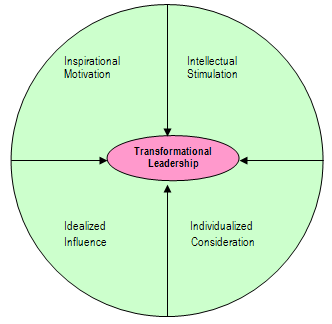Cultural Dimensions of Leadership
April 3, 2025
 Cultural Dimensions of Leadership
Cultural Dimensions of Leadership
Introduction Leadership in organizations is dictated and determined according to a variety of reasons and factors including personality, cultural, and country and regional aspects. Among the various factors, the cultural dimension of leadership is often not highlighted as it is taken as a given. However, with globalization and the advent of tighter integration and interconnectedness,…
 Continuum of Leadership Behaviour
Continuum of Leadership Behaviour
The leadership continuum was originally written in 1958 by Tannenbaum and Schmidt and was later updated in the year 1973. Their work suggests a continuum of possible leadership behavior available to a manager and along which many leadership styles may be placed. The continuum presents a range of action related to the degree of authority…
 The Challenge for Contemporary Leaders is to Restore Trust and Faith in Institutions
The Challenge for Contemporary Leaders is to Restore Trust and Faith in Institutions
Loss of Trust and Faith and the Rise of Populists Public trust and faith in institutions is at an all time low. Starting with the Global Financial Crisis of 2008 in the United States and then the Sovereign Debt Crisis in Europe in 2009, including the Brexit vote in the United Kingdom, and the election…
Creating high-performance workforce has become increasingly important and to do so business leaders must be able to inspire organizational members to go beyond their task requirements. As a result, new concepts of leadership have emerged - transformational leadership being one of them.
Transformational leadership may be found at all levels of the organization: teams, departments, divisions, and organization as a whole.
Such leaders are visionary, inspiring, daring, risk-takers, and thoughtful thinkers. They have a charismatic appeal. But charisma alone is insufficient for changing the way an organization operates.
For bringing major changes, transformational leaders must exhibit the following four factors:
Figure 1: Model of Transformational Leadership
Their vision is so compelling that they know what they want from every interaction. Transformational leaders guide followers by providing them with a sense of meaning and challenge.
They work enthusiastically and optimistically to foster the spirit of teamwork and commitment.
The leaders focus on the “what” in problems and do not focus on the blaming part of it. They have no hesitation in discarding an old practice set by them if it is found ineffective.
Such leaders always win the trust and respect of their followers through their action. They typically place their followers needs over their own, sacrifice their personal gains for them, ad demonstrate high standards of ethical conduct. The use of power by such leaders is aimed at influencing them to strive for the common goals of the organization.
The common examples of transformational leaders are Mahatma Gandhi and Obama.
The current environment characterized by uncertainty, global turbulence, and organizational instability calls for transformational leadership to prevail at all levels of the organization.
The followers of such leaders demonstrate high levels of job satisfaction and organizational commitment, and engage in organizational citizenship behaviors. With such a devoted workforce, it will definitely be useful to consider making efforts towards developing ways of transforming organization through leadership.
Your email address will not be published. Required fields are marked *